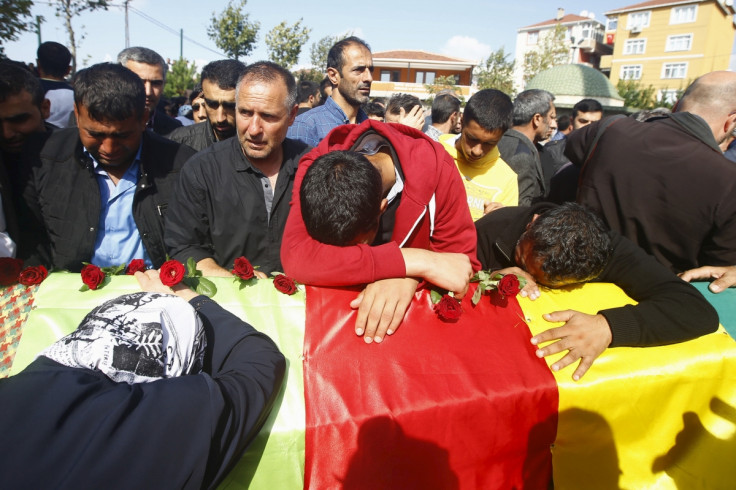Yunus Emre Alagoz: Brother of Suruc bomber 'identified' as Ankara suicide attacker

Turkey has reportedly identified the two suicide bombers who killed at least 97 people at a peace rally in Ankara. One of them has been named as Yunus Emre Alagoz, the missing brother of the man who who attacked a cultural centre in Suruc, at the border with Syria, on 20 July, killing 32 young socialists and aid volunteers.
Hurriyet News reported that Alagoz arrived in Ankara along with the second suspect, Omer Deniz Dundar, from the southeastern province of Gaziantep in separate vehicles. The pair, who are believed to have links to Islamic State (Isis), were identified by Turkish police by using DNA from the blast.
Senior security sources noted from the beginning that the double bombings bore striking similarity to the Suruc attack. In both occasions, TNT explosives packed with metal ball bearings were used.
However, IS, which usually boasts about its attacks on social media and through its media branch, has made no statements so far about Suruc and Ankara.
If confirmed, the latest development will fuel widespread criticism that the AKP government of Recep Tayyip Erdogan failed to protect the rally and provide sufficient security for the attendees. Reports that the brother of Suruc bomber Abdurrahman Alagoz was ready to carry out a suicide attack had already featured in the Turkish press.
In the aftermath of the attack, the liberal and pro-Kurdish HDP, along with trade unions, minority groups and leftist associations, pointed the finger at Erdogan, who is accused of raising tensions in the country to secure a majority.
Many members of the HDP lost their lives in the bombings.
Earlier on Wednesday 14 October, Turkish Prime Minister Ahmet Davutoglu said that both IS and the Kurdistan Workers Party (PKK) have a role in the attacks.
"As we deepen the investigation, based on the [information obtained about] Twitter accounts and IP addresses, there is a high possibility that Daesh [Arabic name for ISIL] and the PKK had a effective role in the bombing," he said at a press conference.
© Copyright IBTimes 2025. All rights reserved.





















